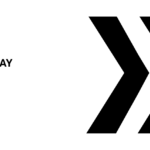Accessing funding from banks and traditional lenders is becoming increasingly difficult for Kiwi small business owners, according to a new study by YouGov.
The research, commissioned by small business lending specialist, Prospa, reveals the majority (57 percent) of small business owners in New Zealand say it is getting harder to access funding from the banks and traditional lenders. For younger businesses operating less than five years, this figure was as high as 69 percent.
The findings shine a spotlight on one of the biggest barriers to growth for small businesses, particularly as many look to rebuild and recover from the impact of COVID and invest in their future.
Of those who have tried to access funding, more than half (55 percent) of respondents say they’ve missed out on opportunities to grow their business, because they couldn’t access funding when they needed it.
In that same group, millennial small business owners (72 percent) were more likely than their Baby Boomer counterparts (46 percent) to say that they have missed out on business opportunities due to funding difficulties.
Beyond this, the survey highlights almost seven in ten (69 percent) small businesses have used personal finances for business purposes. Of which, almost two in three (65 percent) have tapped into personal savings and nearly four in ten (39 percent) have used personal credit cards. Just under one in four (24 percent) have borrowed from family and friends and 21 percent have drawn down on a mortgage.
When those who think it is getting harder were asked what the biggest pain points were for accessing funding from the banks and traditional lenders, more than four in ten respondents said too much red tape and that the process took too long. 41 percent said the products offered weren’t suited to their needs, and 37 percent said they either couldn’t or didn’t want to provide asset security, such as a family home, upfront.
“Small businesses need funding to move forward, whether that’s hiring new employees, buying new equipment, or rolling out new goods and services, says Prospa General Manager, New Zealand, Adrienne Church (pictured). “When businesses can’t access the capital they need, when they need, they can remain in a state of limbo, and in some cases, even go backwards. Or they can fall into the traps of blurring business and personal finances, which can add additional emotional stress.
“Many small businesses still don’t realise they have viable alternatives to banks and traditional lenders, and as a result they are missing out on opportunities to grow and invest in their own success,” adds Church. “Non-bank lenders like Prospa are designed to solve these small business pain points.
“As 2021 kicks off, improving the flow of credit to small businesses will be more important than ever for driving small business recovery and the non-bank sector has a crucial role to play.”
The research also revealed some signs of New Year optimism from small businesses. Even with New Zealand’s two lockdowns (national and Auckland-wide), 53 percent of Kiwi small business owners reported feeling more connected to their community and customers as a business, more so now than they did before the pandemic.
“There does seem to be a silver lining in that the ‘support local’ campaigns really resonated with Kiwis. It was great to see our nation of five million get behind these local businesses, as it’s become a wonderful reminder of how important small businesses are to our communities and for keeping the economy moving,” says Church.
“Small business owners have enough on their plate, so we need to let them get on with doing what they do best – running their businesses and providing that important community connection. Improving small business access to finance is absolutely critical to getting our economy back on track in 2021.”






